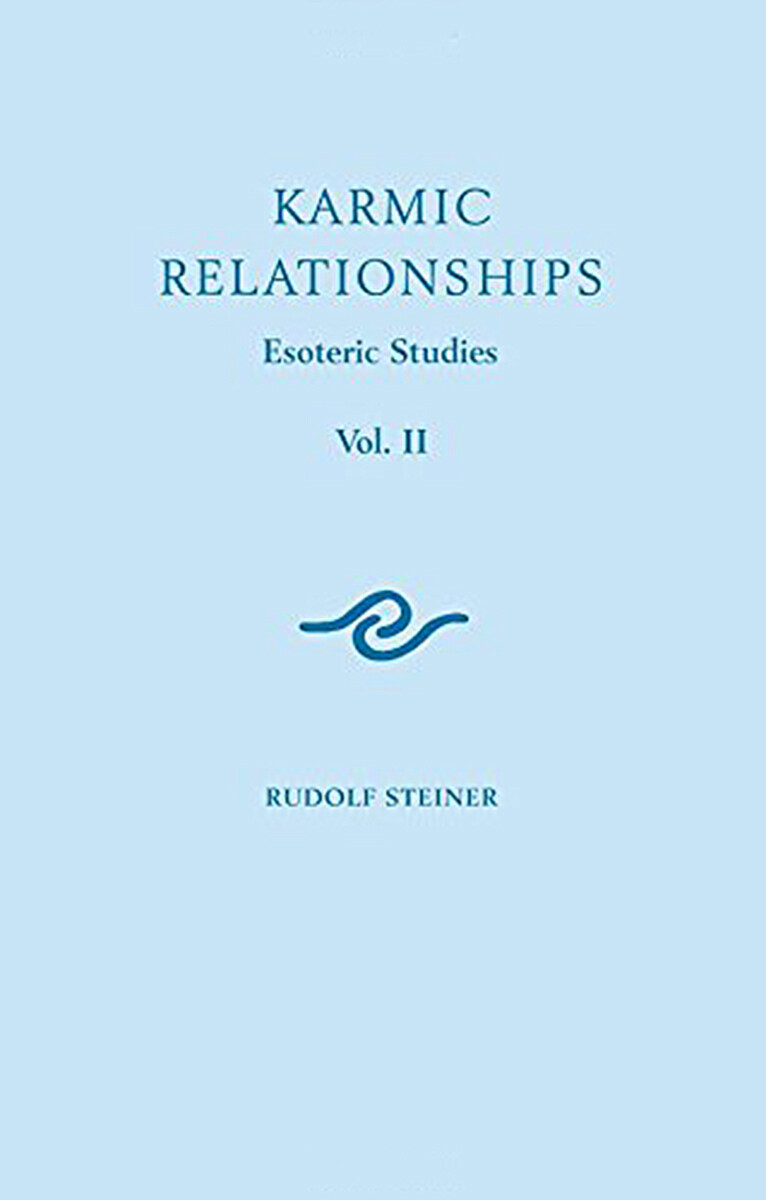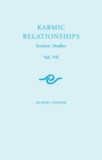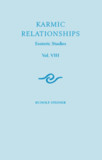Translated by George Adams
Revised by Mabel Cotterell, Charles Davy and Dorothy S. Osmond
- Publisher
Rudolf Steiner Press - Published
7th September 2015 - ISBN 9781855845206
- Language English
- Pages 256 pp.
- Size 5.5" x 8.5"
16 lectures, Dornach, April 6 – June 29, 1924 (CW 236)
During 1924, before his final address in September, Rudolf Steiner delivered more than eighty lectures on karma to members of the Anthroposophical Society. These profoundly esoteric lectures examine the underlying laws of reincarnation and karma, and explore in detail the incarnations of certain named historical figures.
In Rudolf Steiner's words, the study of karma is “a matter of penetrating into the most profound mysteries of existence, for within the sphere of karma and the course it takes lie those processes which are the basis of the other phenomena of world existence.”
In this second volume of the “Karmic Relationships” series, Steiner considers individual karmic relationships in history—for example Marx and Engels—as well as surveying karma in human life, the shaping of karma after death, and the "cosmic form" of karma.
This book is a translation from German of 16 lectures (of 17) in Esoterische Betrachtungen karmischer Zusammenhänge, in 6 Bdn., Bd.2 (GA 236).
C O N T E N T S:
Editor’s Preface
Lectures 1 – 5: Studies of Karmic Relationships in the Course of History
Lectures 6 – 9: Karma in Human Life
Lectures 10 – 13: The Shaping of Karma after Death
Lectures 14 – 16: The Cosmic Form of Karma and the Study of Individual Karmic Relationships
Rudolf Steiner
Rudolf Steiner (b. Rudolf Joseph Lorenz Steiner, 1861–1925) was born in the small village of Kraljevec, Austro-Hungarian Empire (now in Croatia), where he grew up. As a young man, he lived in Weimar and Berlin, where he became a well-published scientific, literary, and philosophical scholar, known especially for his work with Goethe’s scientific writings. Steiner termed his spiritual philosophy anthroposophy, meaning “wisdom of the human being.” As an exceptionally developed seer, he based his work on direct knowledge and perception of spiritual dimensions. He initiated a modern, universal “spiritual science” that is accessible to anyone willing to exercise clear and unbiased thinking. From his spiritual investigations, Steiner provided suggestions for the renewal of numerous activities, including education (general and for special needs), agriculture, medicine, economics, architecture, science, philosophy, Christianity, and the arts. There are currently thousands of schools, clinics, farms, and initiatives in other fields that involve practical work based on the principles Steiner developed. His many published works feature his research into the spiritual nature of human beings, the evolution of the world and humanity, and methods for personal development. He wrote some thirty books and delivered more than six thousand lectures throughout much of Europe. In 1924, Steiner founded the General Anthroposophical Society, which today has branches around the world.








